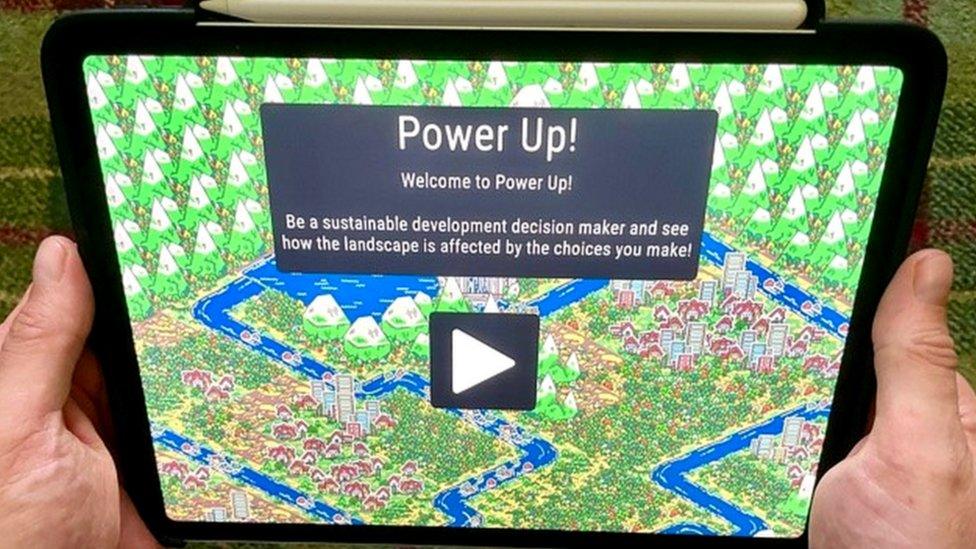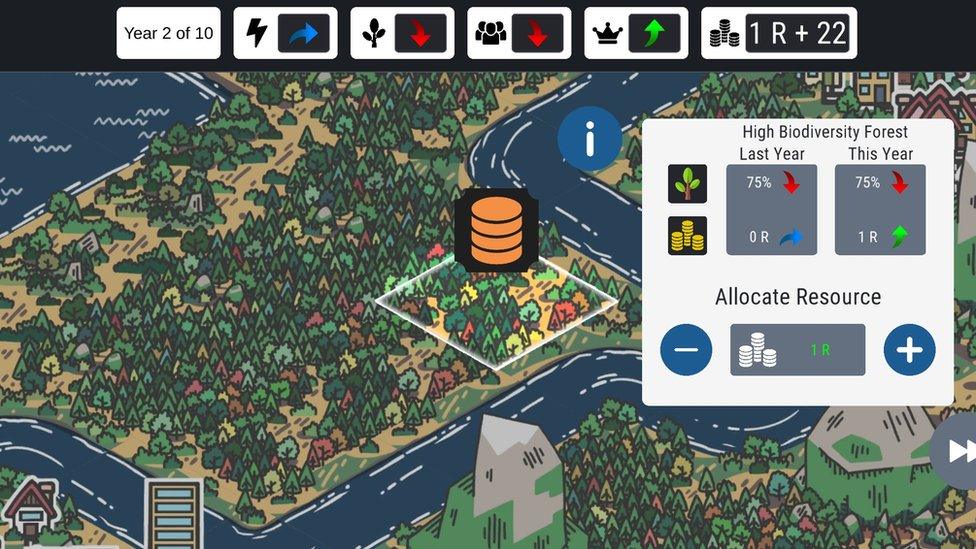Stirling University game puts players in COP26 world leaders' shoes
- Published

A new video game that lets players make decisions as world leaders at the COP26 climate summit has been launched by Stirling University researchers.
Gamers decide where to allocate resources to see the impact of their decisions on people and the planet.
The game will also link players with large-scale research-led data collectors.
The free game, called Power Up!,, external was developed with Dundee company Hyper Luminal Games.
One of the game's tasks is to choose how and where to build a hydroelectric dam, to represent the United Nations' Sustainable Development Goal (SDG) of "clean, affordable energy."

Players can see the result their decisions have on the environment and population
As the game progresses, players make decisions on how to manage "energy generation, biodiversity and community prosperity."
The project was led by Dr Isabel Jones, who said the game allowed players to see the trade-offs between different SDGs and the difficulty of these decisions at a local and global level.
Dr Jones said: "A hydropower dam generates electricity, but it might flood homes and ecosystems that are important for people and biodiversity.
"We need to find ways to make decisions about SDGs that are not harmful for people and the planet."
"We want decision-makers to play too, whether they are in the local river department, county level, government level, or part of inter-governmental agreements."
'Directly affected'
Dr Jones' team will collect data on how players make decisions and will make it available to policymakers and other research teams.
She said: "From the data, we can infer what people value and how they approach challenging sustainable development trade-offs."
The researchers also plan to play the game in workshops with communities in places like the Amazon basin, where dams are being built.
Dr Jones said: "We will work with people that have been directly affected by hydropower development, because our core aim is to mobilise the values, priorities and knowledge of people with lived experience.
"We want to help feed this knowledge and experience upwards, to make sure everyone has a seat at the decision-making table."